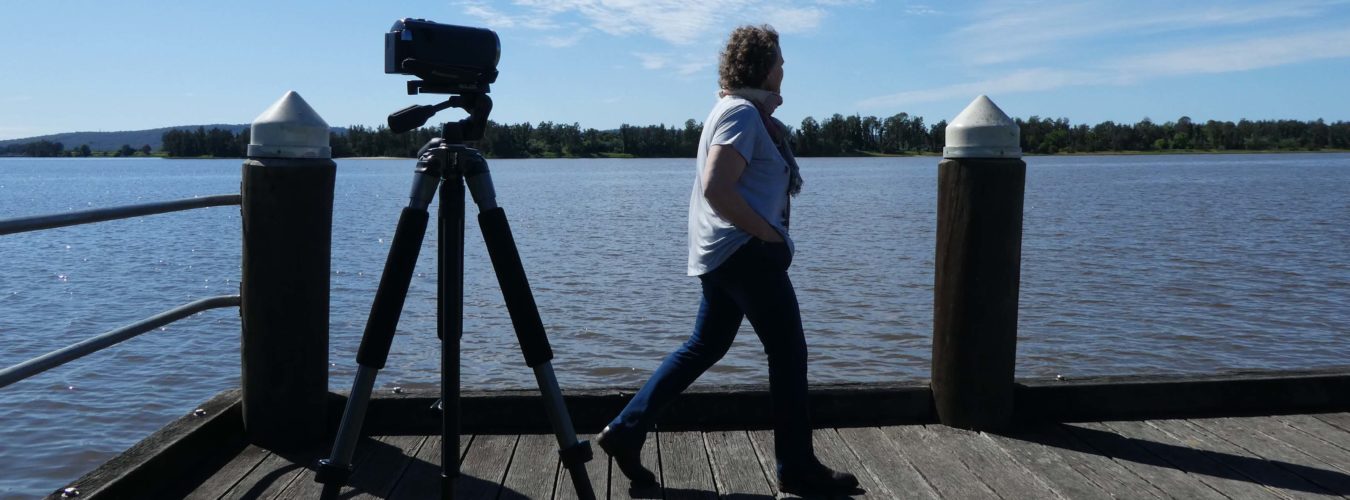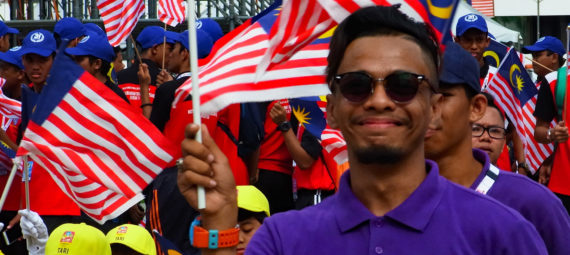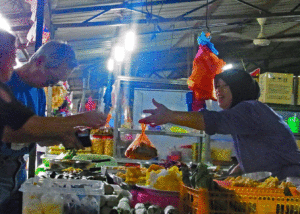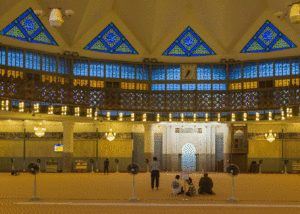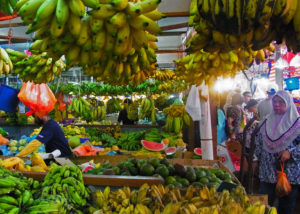WHAT WE LOVED
On the surface of things, Malaysia’s giant sprawling capital Kuala Lumpur might give the impression of a round-the-clock tangle of people, traffic and commercial mayhem. But dig a little deeper and you’ll discover that if it’s chaos, then it’s organised chaos. It’s less of a tangle than a blending of cultures, food and customs (Malay, Chinese, Indian just for starters).
Walking Kuala Lumpur you’ll find history and modernity exist side by side, and there is a surprise around every corner – especially if you take the time to walk the back streets and chat to the people who are friendly, polite and tolerant. We spent three days in KL – before moving onto the Cameron Highlands and Penang (which we might cover in other blog posts in the future).
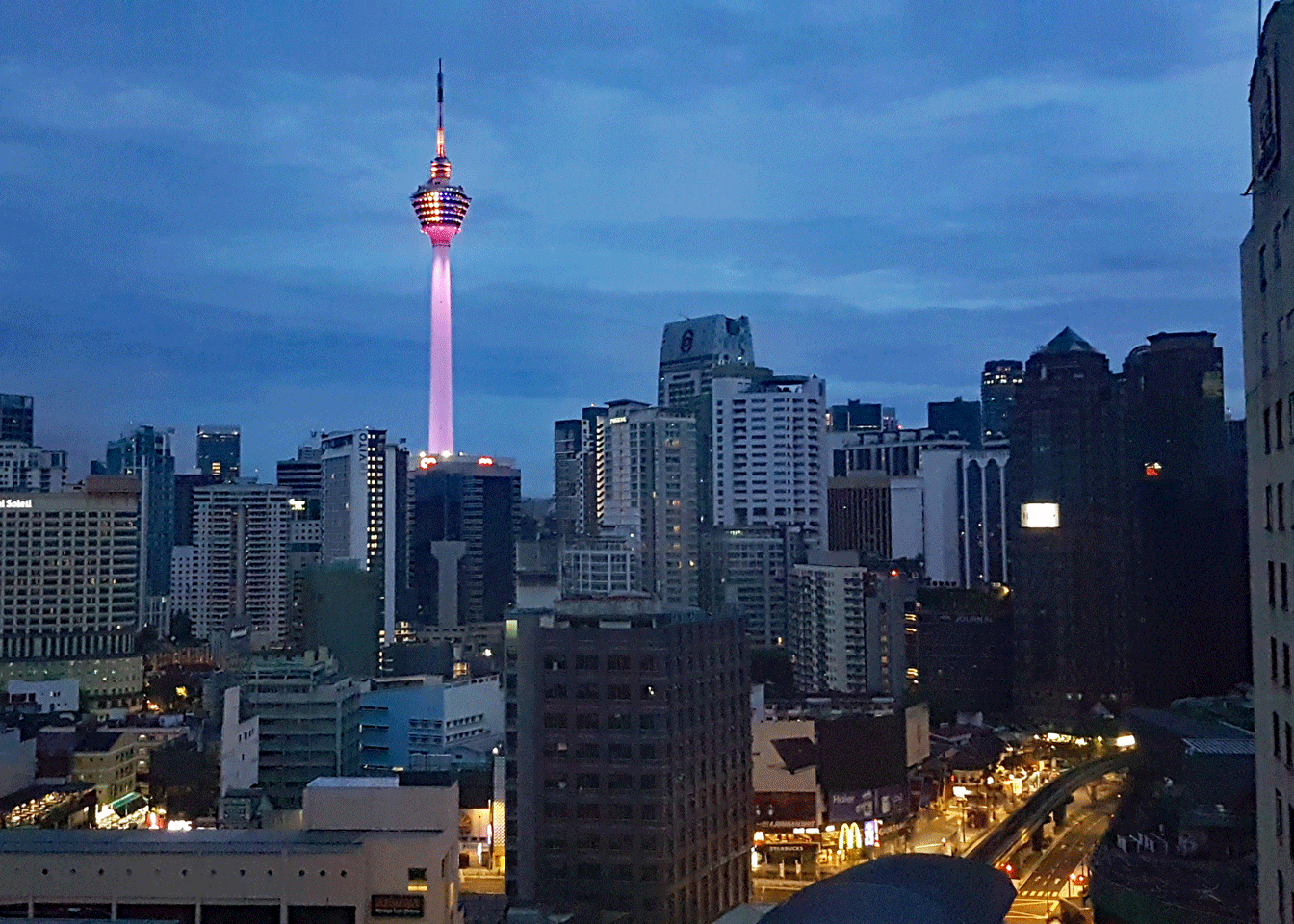
WHAT WE DID
Rode the trains
RapidKL – the public transport system – was a joy to use. The newly opened Mass Rapid Transport subway in particular was something to behold – whisking passengers to downtown Kuala Lumpur from outer suburbs in fast, smooth, air-conditioned comfort.
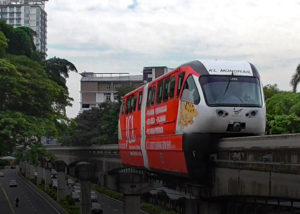
The driverless Chinese-built MRT cost $6billion but the fare for us to travel a few stops into town from our hotel was a minuscule 30 cents Australian.
The more traditional monorail and light rail networks – although at times a bit crowded – were even cheaper. We bought a “myrapid” card for about ten dollars at the station which came with enough preloaded travel to get us around the city for four days.
It was so easy to do and so much cheaper than taxis which get caught in the horror traffic snarls for which KL is renown. Signs and announcements are in both Malay and English. By this method we easily got to the places we wanted to explore on foot.
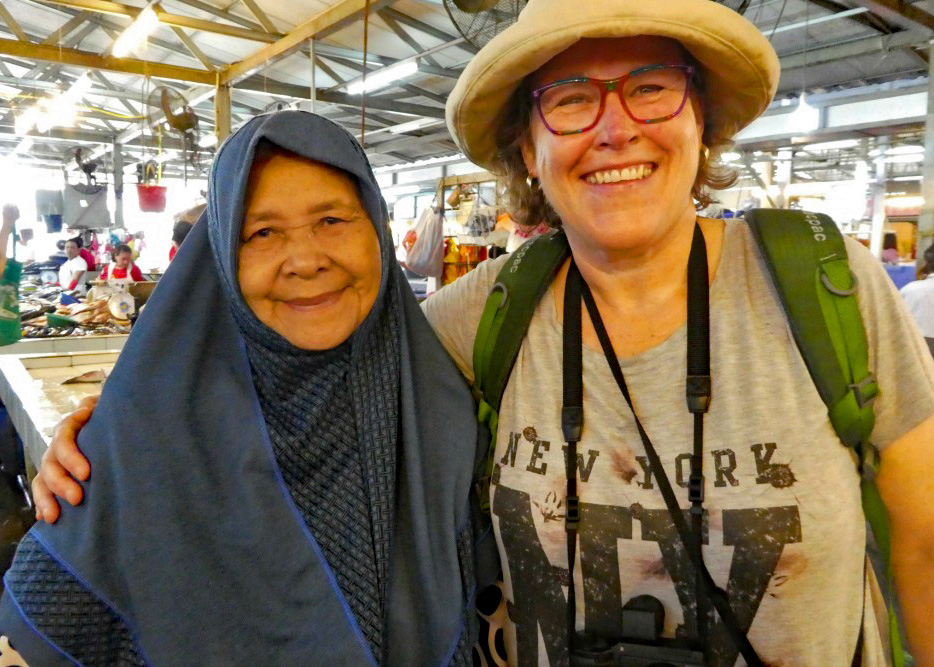
Chatted with locals
Walking Kuala Lumpur puts you closer to where the people are – especially when you get away from some of the very touristy areas. Malaysians on the whole are charming. Almost everyone speaks at least some English and it’s easy to fit in.
We were frequently asked where we were from and what we were doing. A nice woman with her daughter saw us looking puzzled at an intersection and stopped to help out and was happy to chat. Whilst ambling through a local market at Kampung Baru we struck up a conversation with a charming 72-year-old lady who insisted on a selfie before asking us over for dinner with her family to celebrate Malaysia’s national holiday.
We couldn’t go due to other plans, but that sort of kindness to strangers was very endearing.
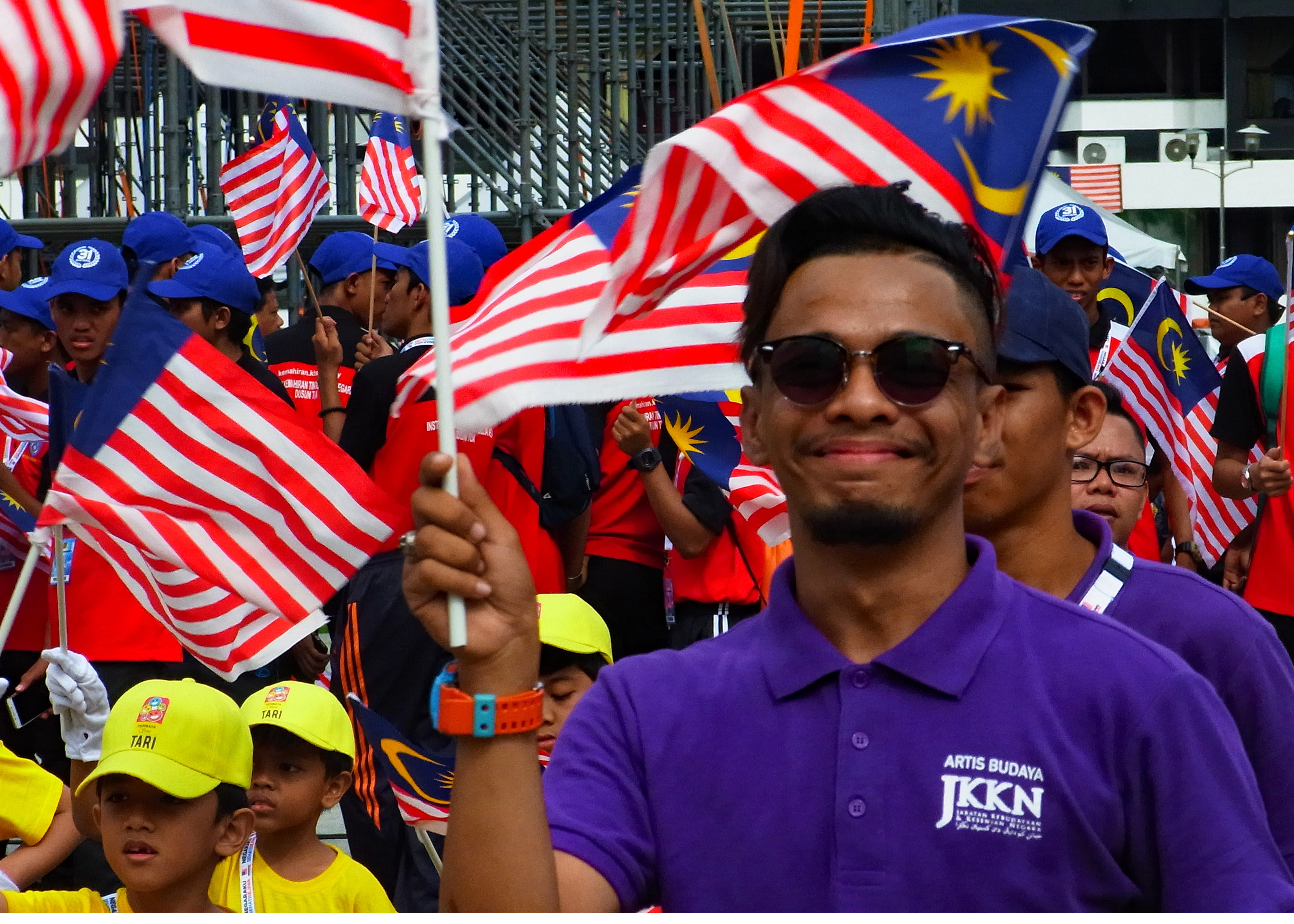
Watched a parade
Walking dramatically increases your chances of seeing something interesting you didn’t expect. That happened for us when we hopped off the light rail bound for famous Merdeka Square only to find everything closed. We were just beginning to wonder what was going on when the answer came marching down the street. Phalanx after phalanx of machine gun wielding police, soldiers and commandos.
A military marching band followed, then the motorcycle cavalry, some tanks and an impressive array of military hardware. Helicopters whirred over head. Jets streaked across the sky. Dancers and crowds of spirited flag-wavers strutted their stuff to the sound of music blasted out by the PA.
It turns out we had stumbled into a dress rehearsal for public celebrations of the 60th anniversary of Malaysian independence from British rule – with the actual event to take place a few days later. We got to see it minus the inevitable huge public holiday crowds.
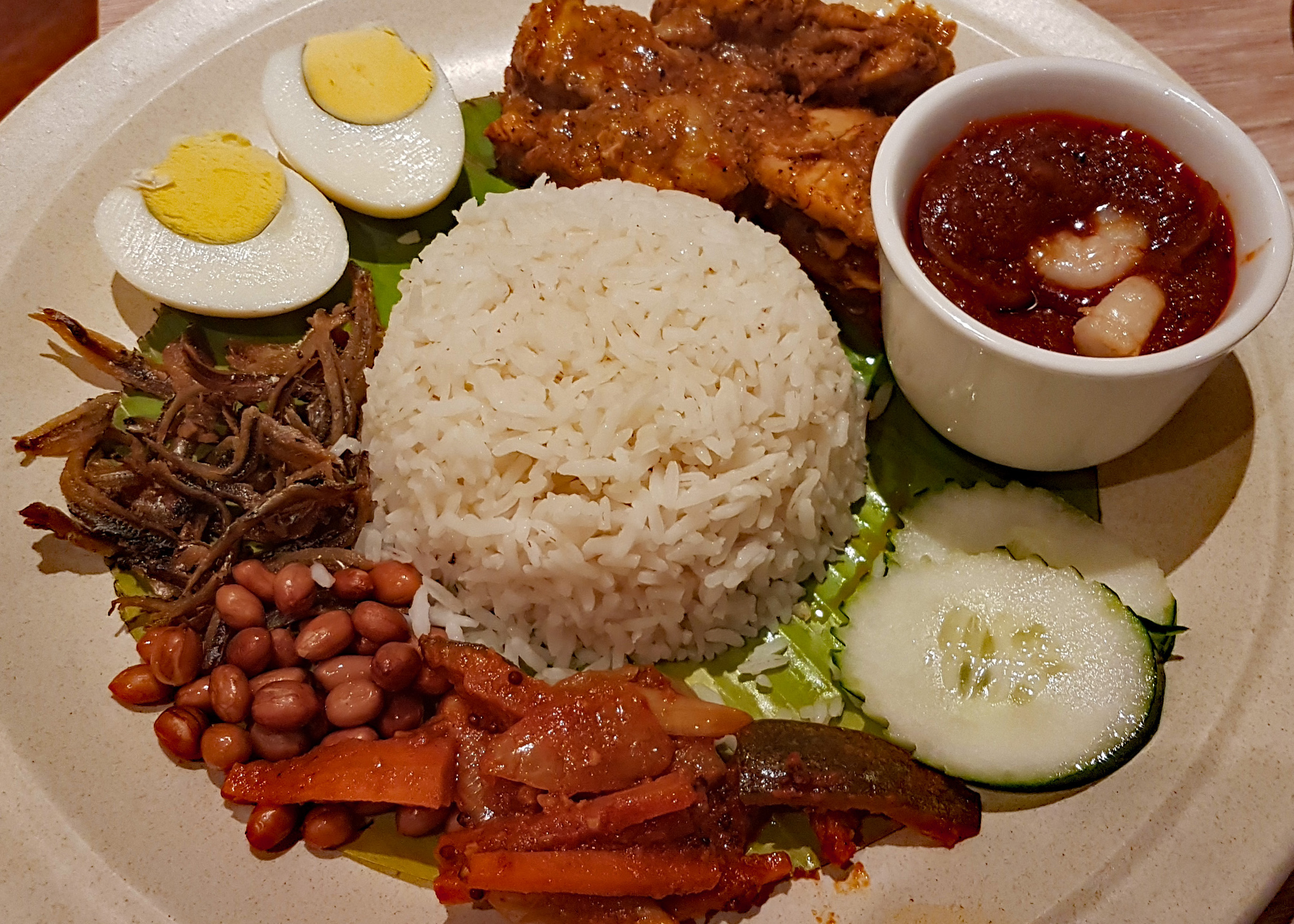
Enjoyed the food
We booked into an on-foot food tour which lead us through the flavours and aromas of KL’s multicultural food scene. Our Chinese guide introduced us to the new subway system – which was not in any of the guide books or maps as it only opened six weeks before.
We enjoyed an array of Malay, Chinese and Indian inspired flavours: Roti bread dipped in delicious dahl. Coconut pancakes cooked in the open at a food stall in Chinatown. Satay sticks, dim sum, spicey noodles, refreshing soy drinks, chai tea, the smell of chestnuts being roasted with coffee beans, the surprising taste of durian flavoured ice cream (not a fan of durian I have to say).
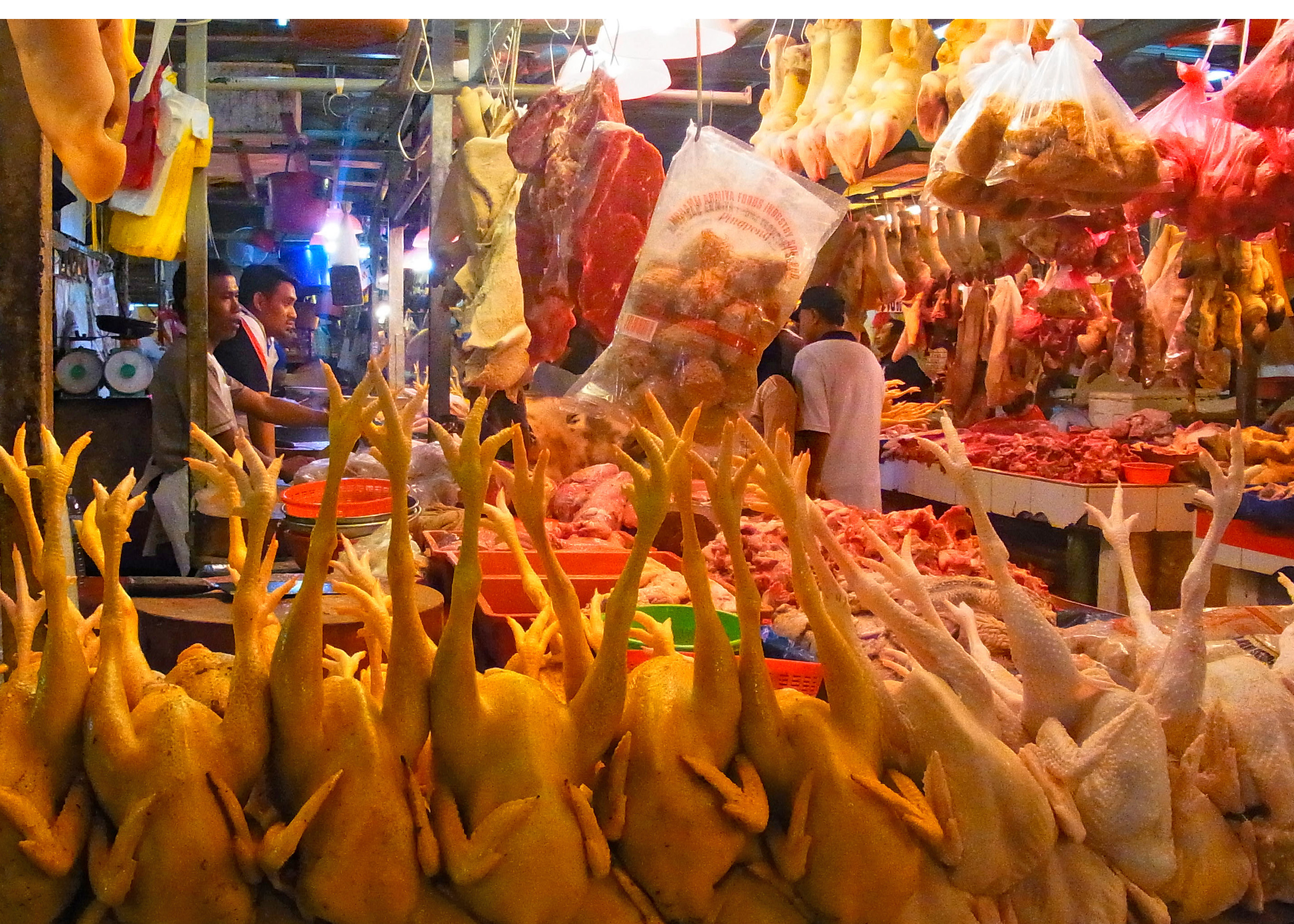
Visited a local produce market
We took a wander through Bazaar Baru Chow Kit – the open air equivalent of the local supermarket. We walked the rows of stalls amongst the shoppers as they placed orders for an astonishing array of vegetables, fruit, meat and fish. A colourful panopoly of sights and smells and the endless calling of the hawkers. We sat down for a meal there among the throng while the stall holder whipped up a prawn curry on a stove next to our table.
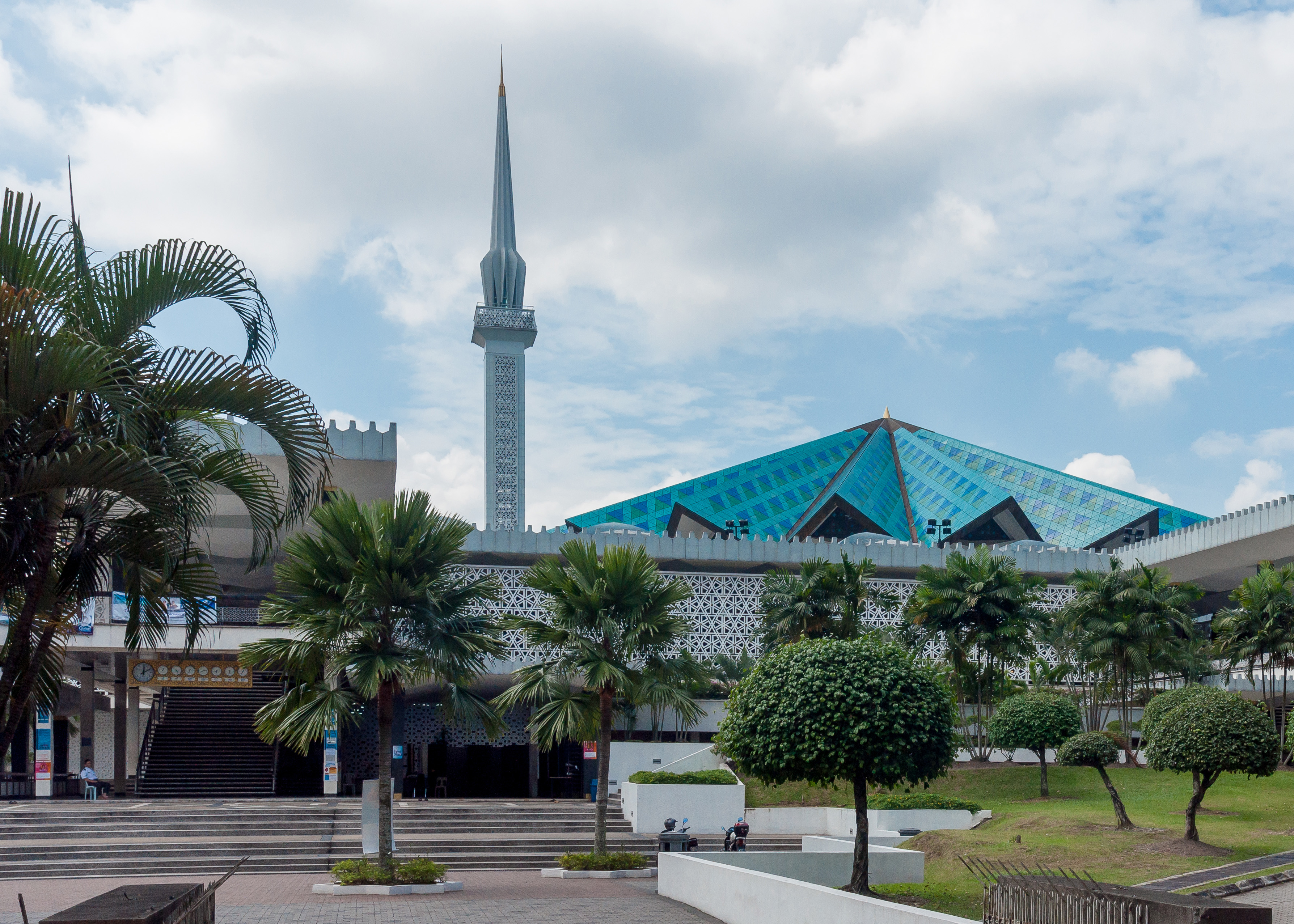
Checked out the mosques
Malaysia is a country of religious buildings of many kinds – but with 65 per cent of the population Islamic – there’s no shortage of beautiful mosques in KL. We took a look at two in particular. The 1960s design national mosque (Masjid Negara) was one of the first major national buildings built once the Malaysian’s achieved independence from the British.
The 73-metre-high minarets and a 16-pointed star concrete main roof are features – reminiscent of the umbrellas so often used for shade from the sun in the tropics. It’s a peaceful place surrounded by fountains and gardens. The 1907 Masjid Jamek (near the station of the same name) is also well worth a look with it’s graceful domes and arches. It sits right at the confluence of the Gombak and Klang rivers. Non-Muslims are welcome to visit both buildings outside prayer times; robes are available for those who are not dressed appropriately.
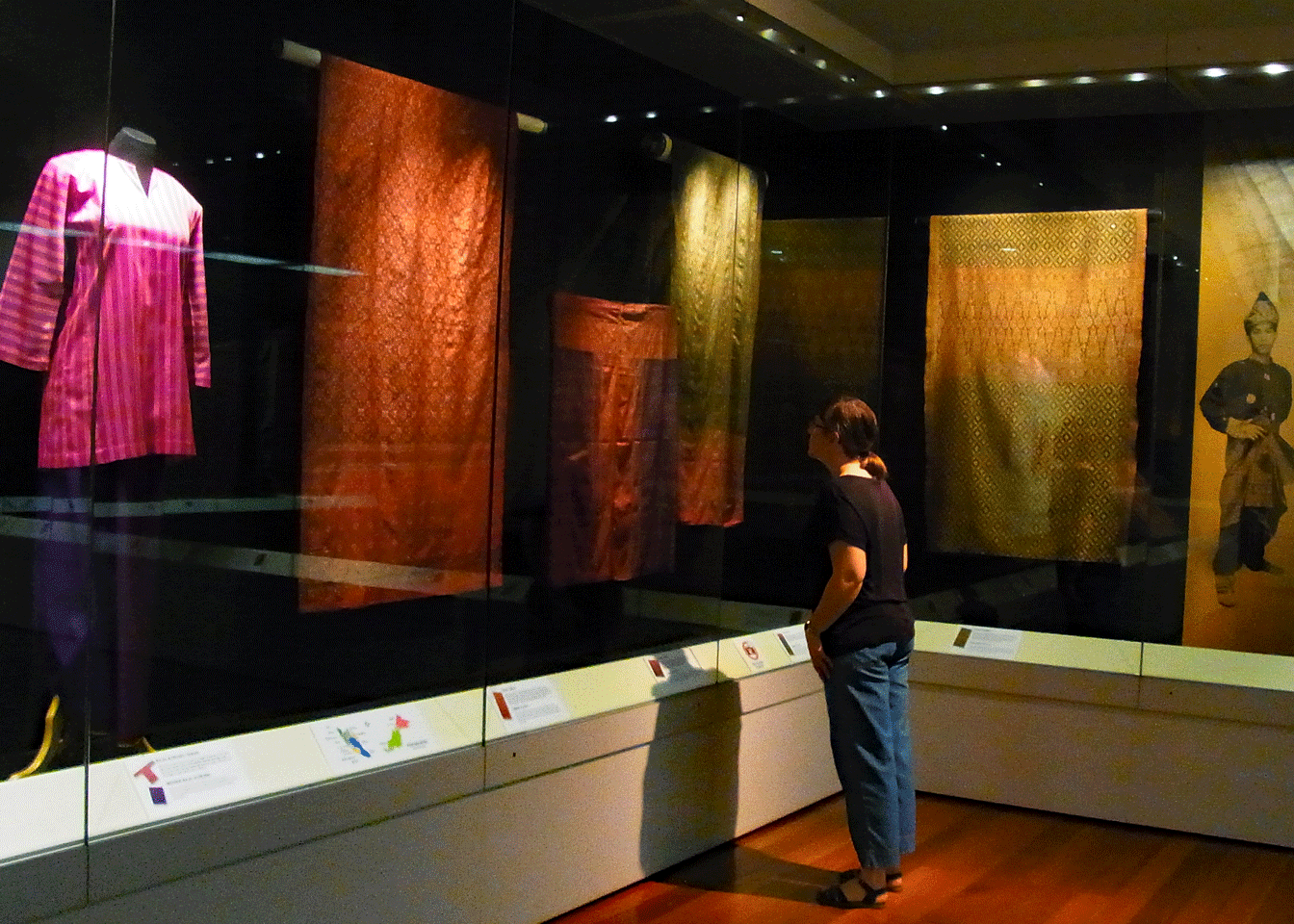
Contemplated lost arts
Even if you are not the museum visiting type – it’s interesting to pop into the National Textile Museum. In it’s halls are the remnants of a lost way of life – labour intensive manufacturing processes all but gone, and styles unlikely to be seen again in this global homogenous world we live in. Beautiful fabrics and colours of traditional Malaysia. Check out the bark clothing.
WHERE WE STAYED
We stayed in the ParkRoyal located in Bukit Bintang in KL’s “golden triangle’ district. We’ve not stayed in the city before so can offer no comparisions, but it had some definite advantages. Topping this list is the fact that it is right next to a monrail station which made it so easy to get around the city. If you are into retail therapy – you will be surrounded by a high end shopping area, bars and restaurants.
Staff were helpful. In house dining was good if you really felt like staying in – and the pool was a great relief in the hot Malaysian weather. It’s everything you’d expect from 4 stars in a modern city.
OTHER MALAYSIAN POSTCARDS
Cameron Highlands
